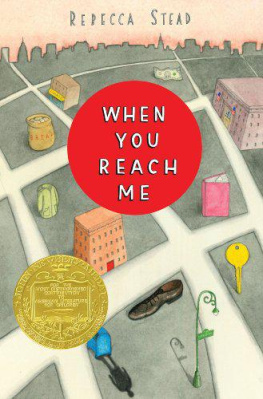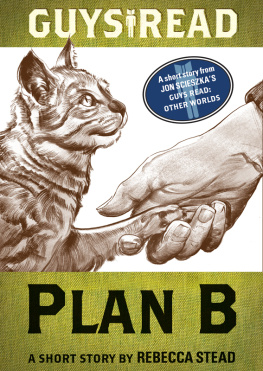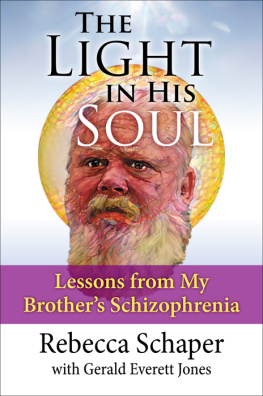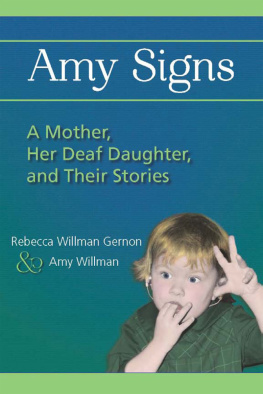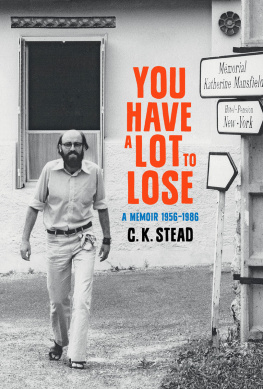Rebecca Stead - First Light
Here you can read online Rebecca Stead - First Light full text of the book (entire story) in english for free. Download pdf and epub, get meaning, cover and reviews about this ebook. year: 2008, genre: Detective and thriller. Description of the work, (preface) as well as reviews are available. Best literature library LitArk.com created for fans of good reading and offers a wide selection of genres:
Romance novel
Science fiction
Adventure
Detective
Science
History
Home and family
Prose
Art
Politics
Computer
Non-fiction
Religion
Business
Children
Humor
Choose a favorite category and find really read worthwhile books. Enjoy immersion in the world of imagination, feel the emotions of the characters or learn something new for yourself, make an fascinating discovery.

- Book:First Light
- Author:
- Genre:
- Year:2008
- Rating:5 / 5
- Favourites:Add to favourites
- Your mark:
- 100
- 1
- 2
- 3
- 4
- 5
First Light: summary, description and annotation
We offer to read an annotation, description, summary or preface (depends on what the author of the book "First Light" wrote himself). If you haven't found the necessary information about the book — write in the comments, we will try to find it.
First Light — read online for free the complete book (whole text) full work
Below is the text of the book, divided by pages. System saving the place of the last page read, allows you to conveniently read the book "First Light" online for free, without having to search again every time where you left off. Put a bookmark, and you can go to the page where you finished reading at any time.
Font size:
Interval:
Bookmark:


F OR MY MOTHER , D eborah,
whose loving heart could warm
even the coldest places,
and for my father , D AVID, TRUE BELIEVER


G RACEHOPE
M ost boys his age had never touched paper. There was little left. Paper was reserved for fine drawing and important documents. Mattias knew even before he could skate that if he were to harm any of it, if he were to crease one corner of one sheet, the consequences would be serious. But Mattias could not resist his mother's drawing table. He loved the drawers and panels that opened almost without a sound, the bright vials of dye, the immaculate brushes on their small rack, the smooth wooden box of charcoal. And although he was a very obedient boy in almost every other way, he regularly explored the contents of the table when he found himself alone with it. Mattias knew its every measure, including the shape of the black dye stain that had dried inside one drawer before he was born. And each time he approached the table, he expected to find it exactly as he had always found it before.
Today he found something new.
It was a thick paper envelope, closed but unsealed, underneath his mother's working sketches. Mattias unwound the string closure slowly, being careful to remember the length that should be left hanging when he tied it again. Inside was a square of paper unlike anything Mattias had ever seen. One side of the square glowed with an image in color, almost as if someone had frozen a moment in time and flattened it, capturing every detail. Even his mother, considered the most talented artist now alive, couldn't create anything like this. Mattias turned it carefully in his hands, holding the square by its sharp corners. It was an image of two women. Sisters, he thought. And there was something elsea glowing blur behind them.
The sun.
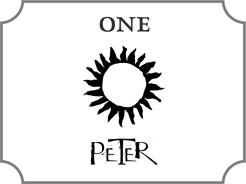
N EW Y ORK C ITY
S EVEN YEARS LATER
A headache, Peter thought as he lay in bed with one arm thrown over his eyes, is something you have to experience to understand. No one can describe a headache to someone who has never had one. He rolled to one side and reached for the little spiral notebook on his night table.
Peter's mother had gotten headaches for as long as he could remember. They sometimes lasted for days, during which she sat in the red chair next to the pull-out couch where his parents slept. She didn't eat, or laugh, or make the proper supper she otherwise insisted upon. Shehardly got up at all. She's gone away again, his father would say. But she'll be back. It happened maybe twice a year.
Everyone said how much Peter was like his mother-their skin that was nearly paper white, their all-over freckles, their wavy hair (hers dark, his blond like his father's), even the way they sneezed (always twice), and laughed (very quietly, after one loud sort of bark). So Peter had always assumed that, like his mother, he would get headaches one day, and that, when he did, they would be headaches just like hers.
Peter paged through the worn notebook. It had his friends' phone numbers in it, and the names of some video games he wanted if his parents ever let him get a video game, and the address of a company in Oregon that sold old radio parts for almost no money, and a bunch of other things. He flipped to the inside back cover, where he had made a series of slashes.
Just after his twelfth birthday, Peter's mother began asking him whether he had a headache. She had never asked him that before, and he couldn't help thinking it was strange she had to ask at all. Wouldn't it be obvious when he had a headache? Wouldn't he, too, sit in the living room and never smile or get hungry? But she kept asking, every week or two, always smiling carefully, as if she were expecting bad news. So they waited, together.
Peter got his first headache a few months later. Heknew right away what it was, and three things surprised him about it. First, it lasted only a few hours. Second, although it hurt some, he was able to eat the same salt-and-vinegar potato chips he bought after school every day. Third, he didn't tell his mother about it.
The only person he told was Miles. He and Miles had been in the same class every year since kindergarten. They knew everything about each other. For instance, Peter knew that Miles only pretended to hate the two stepsisters who lived uptown with Miles's father and stepmother. The truth was that Miles liked them, and that he liked his Monday and Friday nights at his dad's he liked how the apartment was full of life, with friends coming and going, and teasing at dinner, and the way they always ate oranges and popcorn while they watched TV together.
And Miles knew that Peter was afraid to tell his mother about his first headache because it had brought him a little closer to knowing what he had already half-known for years: that his mother's headaches were not headaches at all, but something else entirely. Something she didn't want to talk about. Something like sadness.
Then Peter had more headaches. He took the stub of a pencil from where he had wedged it into the spiral of his little notebook and made a mark next to the others. He counted to himself, slowly.
His ninth. In a month. He replaced the notebook onthe table and rolled over so he could look through the skylight next to his bed.
Peter's family lived in two rooms, if you counted the kitchen but not the bathroom. His parents were shown the apartment by mistakethe university where his father taught had it down as a two-bedroom. But his mother had loved it on sight for its high, slanted ceiling and its enormous skylights, saying she wanted to sleep under the stars, even if you couldn't make them out very well in the city. So they had taken it, and made adjustments. One of the adjustments was the pull-out couch his parents used for a bed. Peter's loft was another.
The loft was a high, carpeted platform that stretched across one end of the living room (Peter's mother always described the living room as thankfully rather enormous). Although it was without doubt an uncommon room, Peter's loft held what his father would call the usual artifacts: Along with the bed, the desk, and the bookcase, there were three shoe boxes packed with baseball cards, a few stuffed animals, and a collection of old radios, most of which Peter had rebuilt himself, or tried to.
A waist-high wooden railing looked over the living room below, but there was no ladder: Peter's father had built a flight of narrow steps inside the coat closet. And while Peter could hear anything said loudly from the living room, including Telephone! or Dinner's on, thepolite thing was to open the closet door and call up the stairs.
His mother nearly always used the stairs, while his father was more likely to forget and yell out to him from the living room couch. Which was why it surprised Peter, still staring out through the skylight, to hear his mother calling him from the kitchen.
Font size:
Interval:
Bookmark:
Similar books «First Light»
Look at similar books to First Light. We have selected literature similar in name and meaning in the hope of providing readers with more options to find new, interesting, not yet read works.
Discussion, reviews of the book First Light and just readers' own opinions. Leave your comments, write what you think about the work, its meaning or the main characters. Specify what exactly you liked and what you didn't like, and why you think so.

